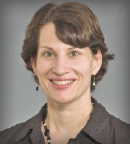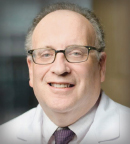I would like to begin by sharing a bit of my journey in geriatric oncology. Often, we do not hear the origin stories behind our professional paths, and I believe it is important to reflect on them.
I have spent my entire academic career at Wake Forest University School of Medicine, where I arrived through a couples match with my husband. Initially, I planned to become a primary care physician and geriatrician, driven by a long-standing admiration for older adults—their stories, their resilience, and the complexity of their care. That passion guided me into geriatrics fellowship training.

Heidi D. Klepin, MD, MS
‘A Pivotal Realization’
During my fellowship, I had a pivotal realization. I found myself continually thinking about the older oncology patients I had cared for during residency, especially those on the leukemia service. The uncertainties surrounding treatment for older adults were profound, and the need for personalized care was urgent. I had spent significant time rotating through the leukemia service, which, in retrospect, may have been a stroke of luck that cemented my interest in this patient population.
Motivated to bridge the fields of geriatrics and oncology, I pursued additional clinical training in hematology and oncology, alongside formal research training. My goal was clear: to translate geriatric principles into oncology practice and design studies that would improve care for older patients with cancer.
In 2006, shortly after joining the faculty, I had the great fortune of meeting the late Dr. Arti Hurria during an Alliance subcommittee meeting focused on cancer in older adults. After hearing her present a study funded by her Beeson Award to assess the predictive value of geriatric assessment on chemotherapy toxicity, we had a serendipitous conversation in the hotel lobby. When I introduced myself as a geriatric oncologist eager to contribute, she invited me to open the study at my institution—despite having no funding to support my participation.
I returned to Wake Forest and spoke with my mentor and section chief who asked me whether this opportunity would be important for my career. I said yes. He found the funds to open the study; thus began my collaboration with Dr. Hurria and what would become the foundation of the Cancer and Aging Research Group (CARG). I went on to pursue independent research while helping shape this new field alongside Dr. Hurria and other pioneers. In 2019, I had the bittersweet honor of joining the CARG leadership team with Drs. William Dale and Supriya Mohile—an experience that remains a career highlight.
Why Geriatric Oncology?
With aging comes complexity. Older adults are underrepresented in therapeutic clinical trials, yet they make up the majority of patients with cancer. Aging brings biologic and functional heterogeneity—chronologic age is an unreliable indicator of treatment tolerance or benefit. Comorbidities, cognitive and physical function, and social support vary widely and significantly impact outcomes.
When I started my oncology clinic in 2006 for patients aged 75 and older—most of whom were in their 80s—I often had to tell them that there were no data specific to their age group to guide treatment decisions. This lack of evidence shocked them and rightly so. At the time, only 20% of patients enrolled in National Cancer Institute (NCI) clinical trials were between the ages of 65 and 75, and less than 10% were older than age 75. These numbers remained unchanged for a decade.
My mission, from the beginning, has been to bring a geriatric lens to oncology—to improve the lives of older adults diagnosed with cancer through clinical care, research, education, and advocacy. My research has focused on three central themes: (1) predicting treatment tolerance; (2) understanding the short- and long-term effects of chemotherapy in older adults; and (3) minimizing treatment-related side effects.
Building the Evidence Base
As a fellow in the early 2000s, a PubMed search for “geriatric oncology” yielded fewer than 100 articles. Most were foundational papers by leaders such as Drs. Lodovico Balducci, Harvey Cohen, Martine Extermann, and Silvio Monfardini. Today, there are more than 19,000 such papers. However, not all are truly focused on geriatric oncology, and significant gaps remain.
My early research focused on patients with acute myeloid leukemia, a disease with stark age-related disparities in outcomes. I conducted an observational study funded by an ASH Scholar Award, which demonstrated that geriatric assessment was feasible, uncovered hidden vulnerabilities, and identified factors that independently predicted survival after accounting for disease biology.
This study faced multiple rejections before being funded. I was advised to switch diseases, to pursue easier projects. I nearly gave up, but I believed this work was important—and it was. That study helped define my career and showed that persistence in the face of doubt is essential.
I also collaborated on seminal CARG studies, including those that led to the development of chemotherapy toxicity prediction scores for older adults. These tools remain in use today in clinics like mine and were instrumental in shaping the 2018 ASCO guideline recommending geriatric assessment for all patients aged 65 and older undergoing chemotherapy.
However, a 2019 survey of more than 1,200 oncologists found that only 50% were aware of these guidelines, and just 20% routinely conducted geriatric assessments. Barriers included time, resources, training, and uncertainty about what to do with the information gathered.
Demonstrating Clinical Impact
What was missing was evidence that geriatric assessment could improve outcomes—not just predict them. This gap was addressed in 2021, with the publication of several large, randomized controlled trials.
One of the most impactful was the GAP70+ study, which randomized oncology clinics across the country. Clinics in the intervention arm received a summary of each patient’s geriatric assessment findings, along with practical management recommendations—no geriatrician, no added resources—just information. The result was a 21% absolute reduction in serious chemotherapy toxicity, without compromising survival.
This study proved that even modest interventions based on geriatric assessment could meaningfully improve care. Geriatric assessment enables oncologists to tailor treatment—through dose adjustments, supportive care interventions, and better communication.
As a result, ASCO updated its guidelines in 2023, recommending that all older adults starting any systemic therapy—not just chemotherapy—receive a geriatric assessment. The Practical Geriatric Assessment Toolkit was created to help community oncologists implement this efficiently.
Looking Forward: Implementation and Advocacy
Guidelines alone are not enough. We need implementation research to support the adoption of these tools in everyday practice. I am currently co-leading the development of a multisite study aimed at testing implementation strategies for geriatric assessment in community oncology settings.
Additionally, closing the evidence gap in clinical trials remains a critical priority. Older adults are still underrepresented in NCI trials—enrollment patterns have not changed meaningfully in 20 years.
To address this, ASCO, the U.S. Food and Drug Administration, the National Institutes of Health, and the National Academies have issued statements, convened workshops, and published recommendations calling for the following:
- Innovative trial designs for older adults;
- Inclusion of aging-relevant endpoints;
- Integration of geriatric expertise into research teams;
- Ethical responsibility to generate data for this population.
It is unacceptable to treat a population as large and vulnerable as older adults without sufficient evidence. We must make enrollment of older adults in clinical trials a priority—not an afterthought.
Closing Thoughts
The data are clear: Geriatric assessment improves outcomes. We must now focus on translating this evidence into practice and ensuring that older adults are included in the research that informs their care.
The path has not always been easy, but I have been sustained by my belief in this mission; by the support of incredible mentors, colleagues, and organizations such as CARG; and by the patients who inspire us to do better. Let us continue this work—together.
DISCLOSURE: Dr. Klepin serves as a contributor to UpToDate on geriatric assessment in leukemia.
Meet Heidi D. Klepin, MD, MS: Improving Care for Older Adults With Cancer Through Research to Practice
by Stuart Lichtman, MD, FASCO: Guest Editor, Geriatrics for the Oncologist

Stuart Lichtman, MD, FASCO
Dr. Klepin is an internationally recognized leader in geriatric oncology. As a trained geriatrician, oncologist, and hematologist with a Master’s degree in health sciences research, Dr. Klepin has devoted her career to improving care for older adults with cancer through clinical research and practice. She is Professor in the Department of Cancer Medicine at Wake Forest University School of Medicine in Winston-Salem, North Carolina. Dr. Klepin’s clinical work focuses on providing specialized oncology care for adults aged 75 and older. Her research investigates the role of geriatric assessment and frailty measures to predict treatment outcomes and the design of interventions to minimize treatment-associated disability and improve quality of life.
Dr. Klepin has had continuous research funding and authored more than 180 publications over the course of her career. She is a past participant in the ASCO Leadership Development Program and currently serves as a co-lead for the national Cancer and Aging Research Group. Dr. Klepin has participated in national advocacy to improve the evidence base for older adults with cancer to enhance quality care. Her national leadership roles have included serving as past Chair of the ASCO Cancer Research Committee, a member of the American Society of Hematology (ASH) Scientific Affairs Committee, and a member of the U.S. Food and Drug Administration Oncology Drug Advisory Committee.
Dr. Klepin is also passionate about mentoring and serves as Associate Director for the Cancer Research Training and Education Coordination Office for the Atrium Health Wake Forest Baptist Comprehensive Cancer Center. This article, “Advancing Geriatric Oncology: A Personal and Professional Journey,” is the edited transcript of Dr. Klepin’s lecture during the ASCO 2025 Annual Meeting, where she was the 2025 recipient of the B.J. Kennedy Geriatric Oncology Award.
First awarded in 2007, the B.J. Kennedy Geriatric Oncology award and lectureship were created in the name of Dr. B.J. Kennedy, a past President of ASCO, in honor of his outstanding contributions to the research, diagnosis, and treatment of cancer in the elderly and in recognition of his bringing an understanding of the field to the many fellows he mentored. The award is endowed by Dr. Tony and Mrs. Carrie Cheung.
Dr. Lichtman is a consultant to the Wilmot Cancer Institute Geriatric Oncology Research Group, University of Rochester, and a past President of the International Society of Geriatric Oncology.

